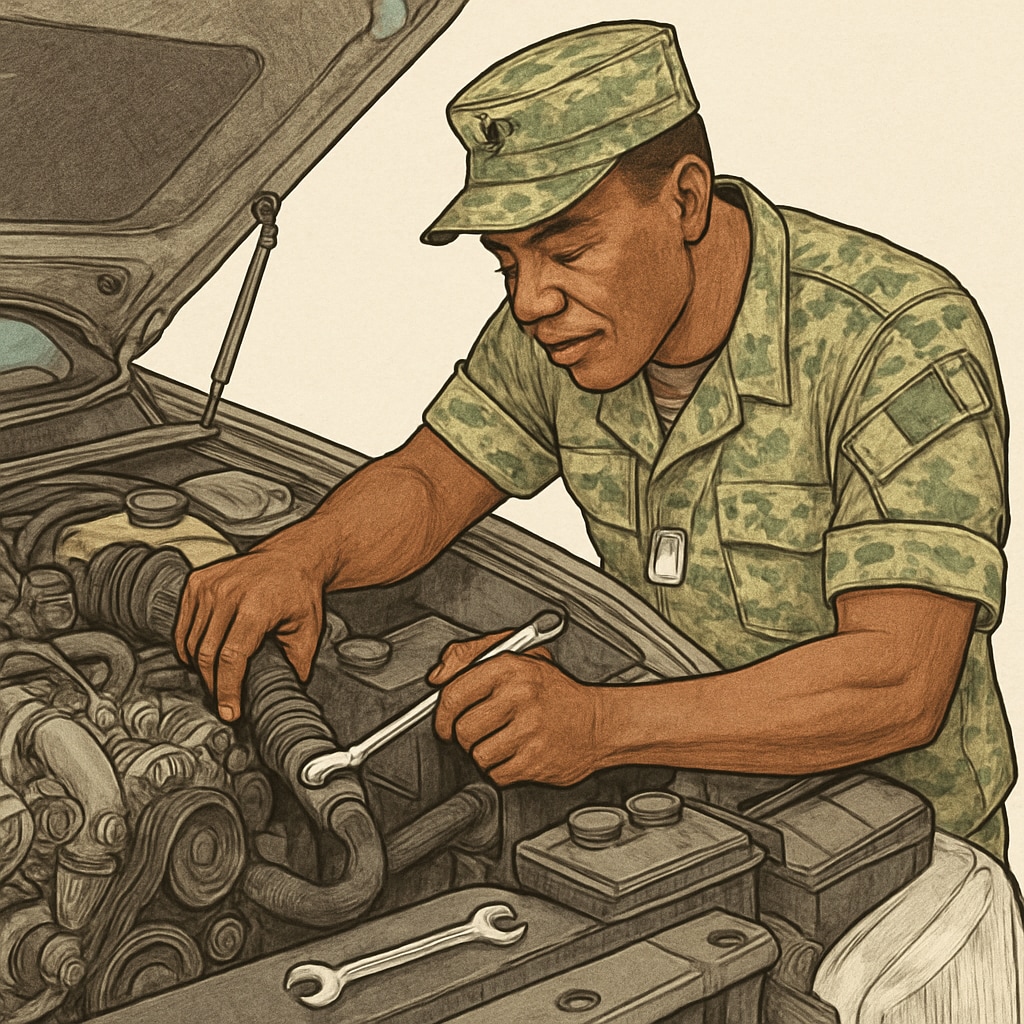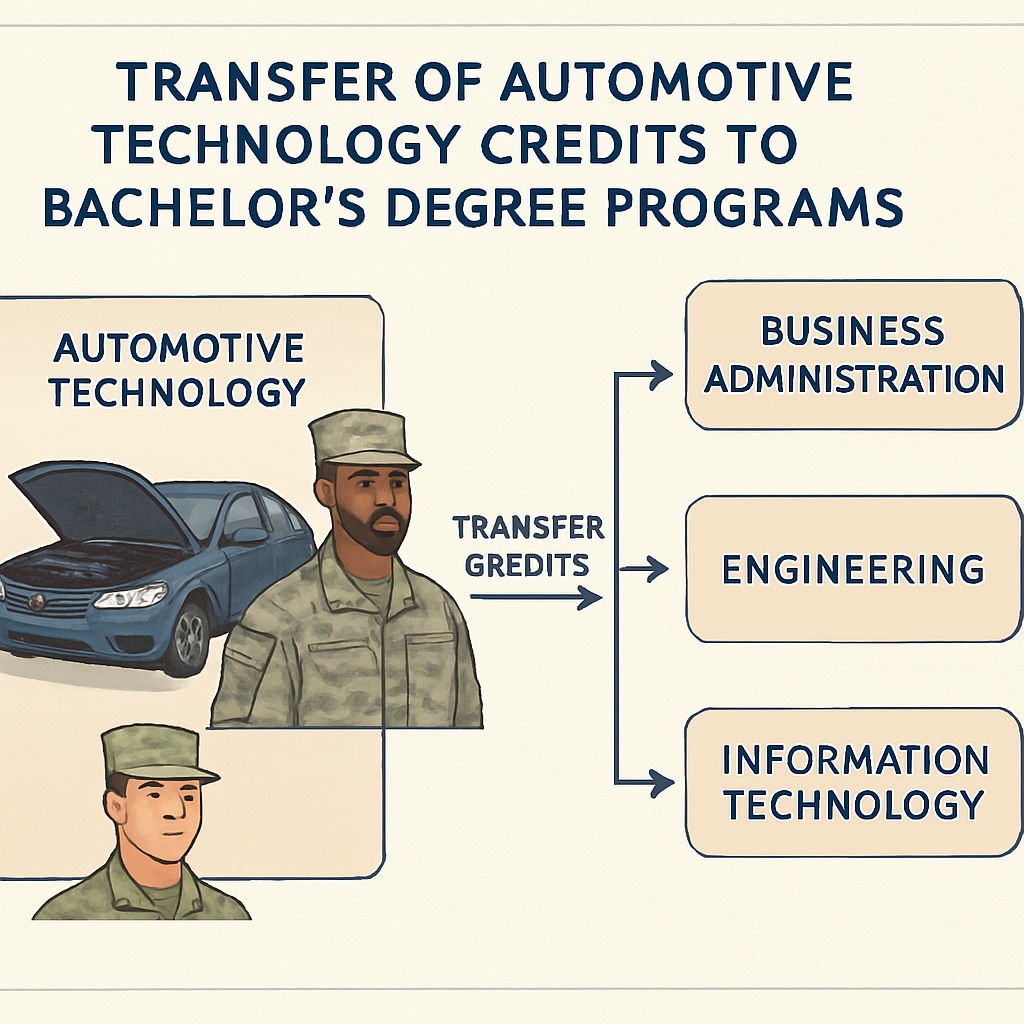For military veterans who hold an associate degree in automotive technology, advancing to a bachelor’s degree can unlock new career opportunities and provide a deeper understanding of the field. Choosing the right pathway requires careful planning, especially when it comes to credit transfer, program selection, and leveraging military-specific resources.

Understanding Credit Transfer and Program Compatibility
One of the initial challenges faced by military veterans is determining how their associate degree credits transfer into a bachelor’s program. Not all programs accept the same number of credits, and understanding transfer agreements between institutions is vital. For example, many universities offer “2+2 programs,” allowing students to complete their associate degree first and seamlessly transfer into a bachelor’s program.
When evaluating programs, veterans should focus on schools that are transfer-friendly and accept credits in automotive technology or applied sciences. Additionally, military experience may translate into college credits under the American Council on Education (ACE) guidelines. Veterans should inquire about the possibility of receiving academic credit for their military training and expertise.

Choosing the Right Bachelor’s Degree Program
Veterans with an associate degree in automotive technology often have several academic options. Below are some popular bachelor’s degree programs to consider:
- Bachelor of Science in Automotive Engineering: Ideal for veterans looking to dive deeper into the technical and mechanical aspects of automotive systems.
- Bachelor of Applied Science: A flexible program designed for students who already hold applied science associate degrees, making credit transfer easier.
- Bachelor’s in Business Administration (Automotive Management): Perfect for those aiming for leadership roles in the automotive industry.
In addition to these options, veterans should prioritize programs that offer hybrid or online courses to accommodate their unique schedules, especially if they are transitioning into civilian life or balancing work commitments.
Leveraging Military-Specific Resources
Military veterans have access to specialized resources that can greatly simplify their academic journey. For example, the GI Bill provides financial support for higher education, covering tuition, housing, and other expenses. Additionally, many institutions offer veteran-specific scholarships and grants, making education more affordable.
Veterans should also explore military-friendly schools and organizations such as the Military Education Benefits page on Military.com and U.S. Department of Veterans Affairs Education Benefits. These resources can guide veterans through the application process and ensure they maximize their benefits.
The Career Potential of a Bachelor’s Degree in Automotive Technology
Upgrading from an associate degree to a bachelor’s degree opens the door to higher-paying roles and leadership opportunities. Graduates may qualify for positions such as:
- Automotive Design Engineer
- Technical Service Manager
- Quality Control Specialist
- Automotive Business Consultant
In addition, veterans with advanced degrees can contribute their unique blend of discipline, technical expertise, and leadership skills to roles in the automotive industry, making them standout candidates in competitive markets.
In conclusion, transitioning from an associate degree to a bachelor’s degree is a strategic decision for military veterans seeking to advance their careers in automotive technology. By focusing on credit transfer agreements, selecting the right program, and utilizing military-specific resources, veterans can navigate this path efficiently and achieve their educational and professional goals.
Readability guidance: Use short paragraphs to ensure clarity. Include bullet points to summarize critical information. Maintain a balance of technical and accessible language for diverse audiences.


